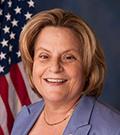
On Tuesday, U.S. Rep. Ileana Ros-Lehtinen, R-Fla., the chairwoman of the U.S. House Middle East and North Africa Subcommittee, heald a hearing on “Democracy and Governance in the Middle East and North Africa.” Ros-Lehtinen said the following in the hearing:
Promoting democracy and governance is not only important for supporting American values but it is also in our national security interest. The recent changes we are seeing in the Middle East and North Africa illustrate the growing demand for real reforms. The changes might be occurring slowly, and sometimes too slow in my opinion, but the U.S. should and must answer this call.
In the long-run, more democratic governments are also stable and reliable allies. Legitimate, inclusive, and responsive governments not only make better trading partners but they also help prevent the kind of marginalization that is pushing so many to violence and extremism in the Middle East today. For the sake of U.S. interests, we have an obligation to support democracy and governance programs, working whenever and wherever possible, to bolster civic institutions and electoral processes, to share best practices for rooting out corruption, for strengthening the rule of law, and to build the kind of support for democracy that can withstand the ups and downs of difficult transitions.
I commend IRI, NDI, IFES, and Freedom House for their tremendous work not only in countries where they are welcomed openly but also inside and on the margins of conflict zones, where they empower stakeholders and prepare them for the next stage. The Ranking Member and I have been lucky to witness firsthand some of your efforts when we travel throughout the region. Just recently, IRI and NDI hosted a roundtable with young Jordanian women leaders who are doing remarkable work as they seek a better future. My staff was also encouraged by the work of IFES in a trip to Tunisia last year, where they were briefed on their electoral programs and assistance with the process of decentralization. And Freedom House continues to be a bastion of liberty and democracy throughout the world – your reports have been instrumental in formulating policies and advocating for things like freedom of the press, digital media, and civil liberties.
But despite all of these efforts, what always seems to be missing from our end is a consistent and patient U.S. strategy that outlines our long-term democracy and governance programs, our goals, and how we can achieve them. Just in the past four years, our democracy and governance – D&G – assistance to the MENA region has varied widely: from about 200 million dollars in Fiscal Year ‘15 to 500 million in Fiscal Year ‘17 to 300 million in the FY18 request. While some variance in approach is to be expected, especially across administrations, being more consistent in our messaging and in our assistance must be prioritized. We need to be consistent about what we expect from our partners, making clear, in no uncertain terms, that any kind of repression will have consequences. We need to hold governments accountable and call out our friends and allies when we see any kind of democracy backsliding. We need to find ways to keep our democracy and governance assistance – D&G – at steady levels, build on prior achievements, and not let progress fall by the wayside. We need to prioritize the participation of youth, of women, and minorities in civic life. And we need to lay the groundwork, so that when the inevitable democratic setback does happen, our programming has made institutions and communities stronger, more resilient, and better able to withstand democratic challenges.
As we look across the region today, there are no shortages of these challenges. In Lebanon, despite many hailing its democratic process, we just saw the Prime Minister resign because of Iran and Hezbollah’s influence in the government. In Libya, despite successes at the local and municipal levels, rival factions continue to spar over the role of the national military. In Tunisia, the large majority of citizens are increasingly frustrated about the direction of the transition, including a recently passed reconciliation law that could let public officials off the hook for corruption. And in Egypt, space for civil society has all but disappeared as the Sisi government silences even the most innocuous criticism. Rumors that Egypt may amend its NGO law should not be taken seriously until we see tangible progress – we have seen this bait and switch strategy too many times before with the Egyptians. And I am increasingly concerned that more countries, like Tunisia with its draft NGO law, will take a page out of Egypt’s playbook.
With countries all over the region struggling to implement reforms, we must ensure that our programming is moving in the right direction – both in focus and in intensity. We cannot let the short-term wins come at the expense of our long-term goals. We must be patient, consistent, and concentrated on promoting democracy and governance – for those fighting for those ideals and for own U.S. interests. I am so pleased to have four witnesses here today from organizations doing this work on the ground. I look forward to hearing about the challenges that you are facing as well as any recommendations that you may make for Congress and the administration.
U.S. Rep. Ileana Ros-Lehtinen, R-Fla., the first woman to lead the U.S. House Foreign Affairs Committee, was first elected to Congress in 1989. She announced earlier this year that she will not run again in 2018.
READ MORE FROM SUNSHINE STATE NEWS
House Passes Ed Royce's, Ted Deutch's Bills Targeting Hezbollah


